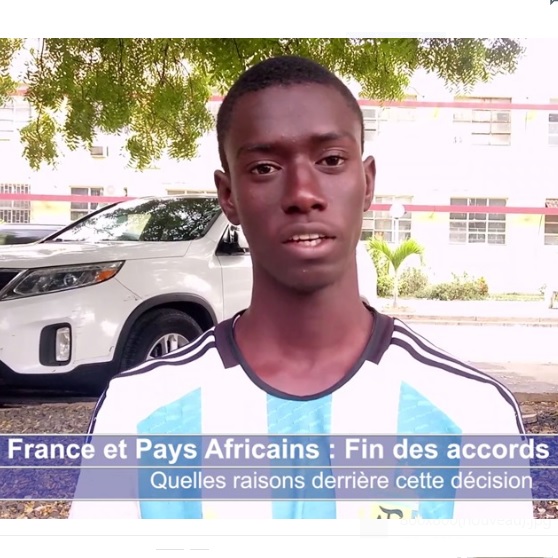Tensions remained high in Nouméa, the capital of New Caledonia, on Friday after days of riots as the French government’s representative said areas of the Pacific territory have “escaped” state control.
Louis Le Franc, high commissioner of the Republic in New Caledonia, announced new security deployments. The number of police and gendarmes on the island will rise to 2,700 from 1,700 by Friday evening.
“Reinforcements will be arriving … to control the areas that have escaped us in recent days, where control is no longer assured,” Le Franc told reporters at a briefing. One person suspected of homicide surrendered to the authorities, he said.
After rioting that began on Monday, leaving five dead and resulting in hundreds of arrests, Thursday night was relatively calm, he said. However, there were still points of confrontation and concern in Nouméa.
Le Franc said operations to supply food and medicine to the public would begin with teams, including specialists in mine clearing, removing road barricades that have been booby trapped by activists.
The New Caledonia government said in a statement on Friday the island has stocks of food for two months and the problem is distribution.
Opposition to a French plan to impose new voting rules spiralled into deadly violence in the archipelago between Australia and Fiji, which is one of several territories around the globe that remain part of France.
At a press briefing on Friday morning, Le Franc said “several hundred” rioters remained in the districts of Kaméré, Montravel and Vallée-du-tir, where the situation is still very difficult.
“These are areas where there are several hundred rioters, who are waiting to make contact with the police,” Le Franc said.
In the working-class districts of Nouméa, which have a high population of indigenous Kanak residents, buildings were burned and wrecked vehicles remained in the middle of the road. The official death toll stood at five, with two police officers killed. The three other victims were Kanak, and images of the corpses circulating on social networks have increased the anger of Kanak youth.
Le Franc said on Friday authorities would seek to restore access to hospitals.
“The first priority is to unblock all the routes. So that carers can get there. The same goes for Caledonians, who need to be taken care of,” he said.
The Field Action Co-ordination Cell (CCAT), the group which organised the protest on Monday against the proposed constitutional reform, blamed the French government for the violence.
“Faced with the state’s stubborn determination to impose a change to the constitution, we denounce its irresponsibility and hold it responsible for the loss of human life, the atrocities and the destruction of the country’s economic fabric,” it said in a statement.
Prime minister Gabriel Attal earlier said about 1,000 extra security forces would be sent to New Caledonia – adding to the 1,700 already present – while authorities would push for “the harshest penalties for rioters and looters”.
Interior minister Gérald Darmanin said reinforcements had started arriving on Thursday. Troops have been called in to secure New Caledonia’s international airport, which has been closed to commercial flights, and main ports. TikTok has been banned because it was being used by protesters, according to authorities.
The social media company called the decision “regrettable” in a statement and said that “no request or question, no demand to withdraw content, had been made by local authorities or the French government”.
As part of the state of emergency about 200 of an estimated 5,000 “rioters” have been detained, French authorities said.
Security forces placed five suspected independence activists accused of organising violence under house arrest, according to authorities.
It added that “people have been ambushing law enforcement officers” with “sustained fire from hunting rifles”.
Sixty-four of the injured are police and security forces.
Onlookers wandered around burnt-out shops, looted shelves and discarded packaging.
Between 80 and 90% of the grocery distribution network in Nouméa – from shops to warehouses and wholesalers – had been “wiped out”, Chamber of Commerce and Industry (CCI) president David Guyenne said. The CCI has said about 200 million euros worth of damage has been carried out.
Nicole George, an Australian professor visiting Nouméa, told AFP she had seen residents armed with improvised weapons manning barricades.
“It is a very tense situation. People are on edge. They are frightened. They are tired,” she said.
While it has on three occasions rejected independence in referendums, the cause retains strong support among the Kanak people, whose ancestors have lived on the islands for thousands of years.
Colonised by France from the second half of the 19th century, New Caledonia has special status, unlike the country’s other overseas territories.
French lawmakers on Tuesday pushed forward plans to allow outsiders who moved to New Caledonia at least 10 years ago to vote in the territory’s elections.
Pro-independence forces say that would dilute the vote of Kanaks, who make up about 40% of the population.
A group of independence movements in French territories around the world convened by Azerbaijan issued statements about the riots on Tuesday and Thursday, prompting Darmanin to accuse Baku of “interference”.
Baku swiftly rejected the allegation as “baseless”.
Voting reform must still be approved by a joint sitting of both houses of the French parliament.
President Emmanuel Macron has said French lawmakers will vote to adopt the constitutional change by the end of June unless New Caledonia’s opposing sides can strike a new deal.
But a videoconference between Macron and New Caledonian lawmakers planned for Thursday was cancelled as “the different players did not want to speak to one another”, his office said.
Agence France-Presse contributed to this report



